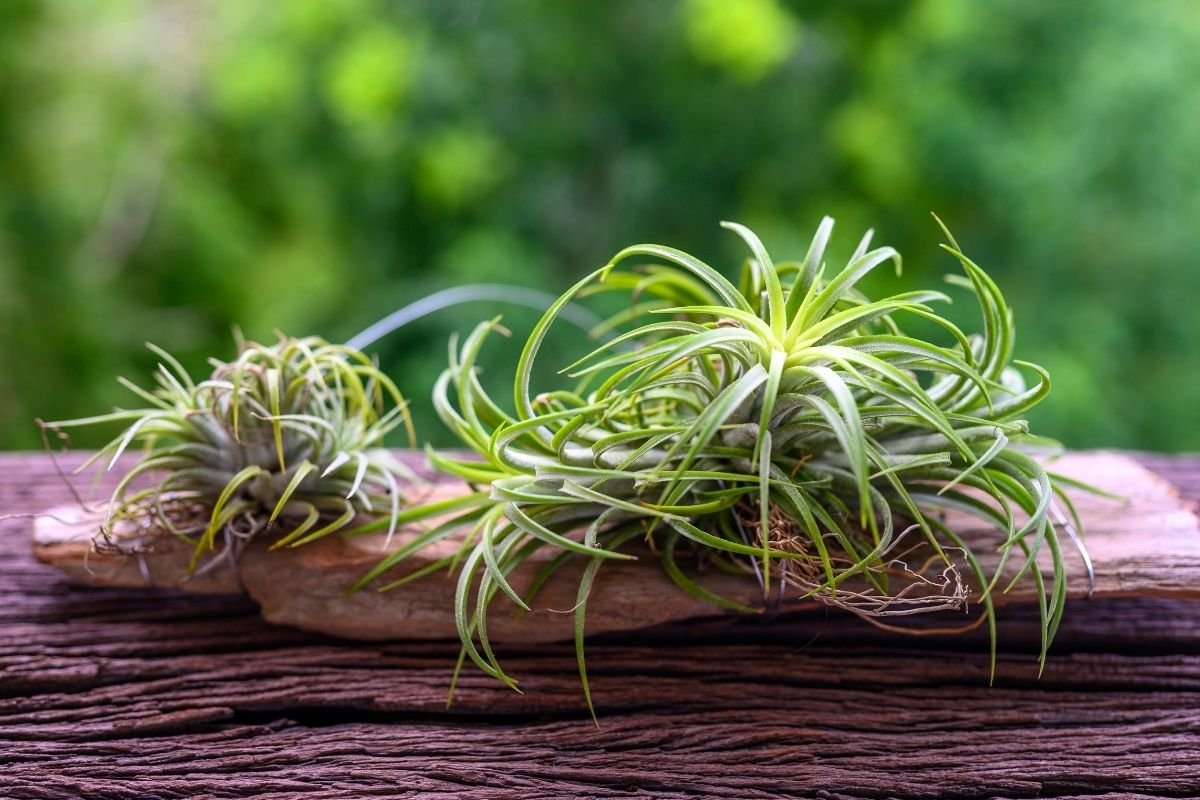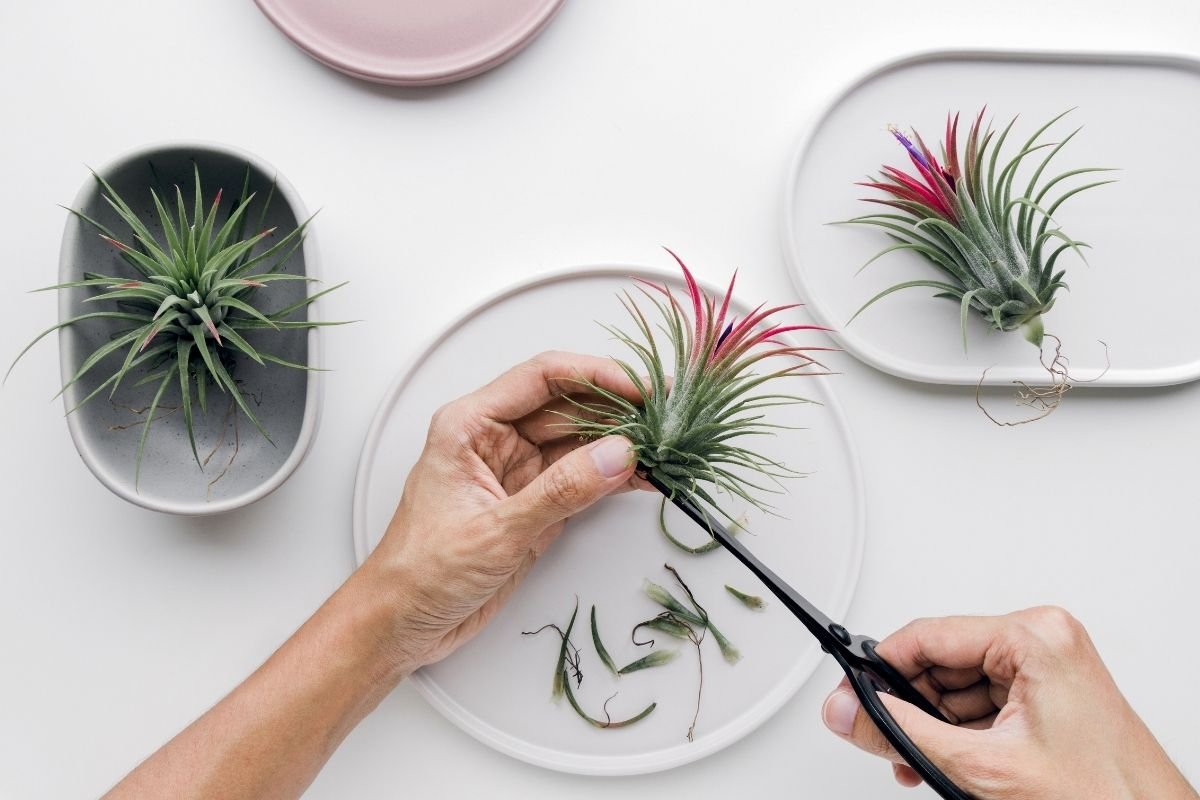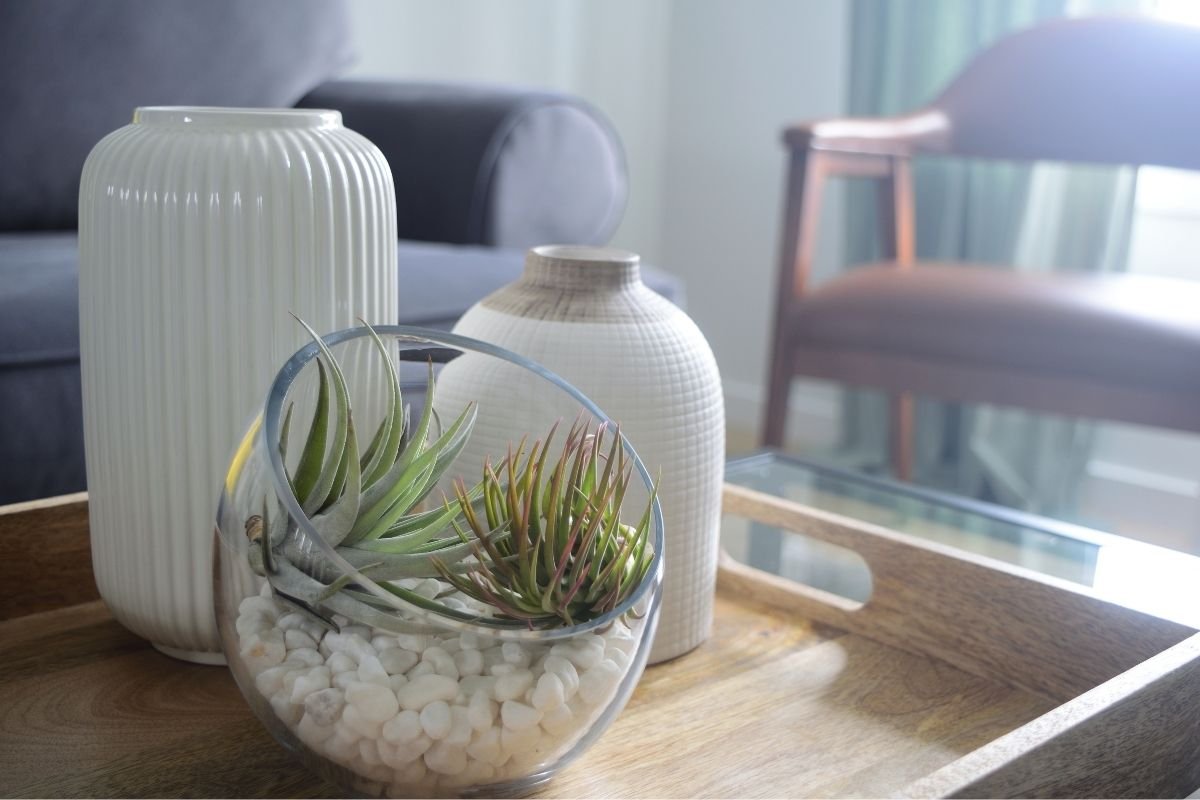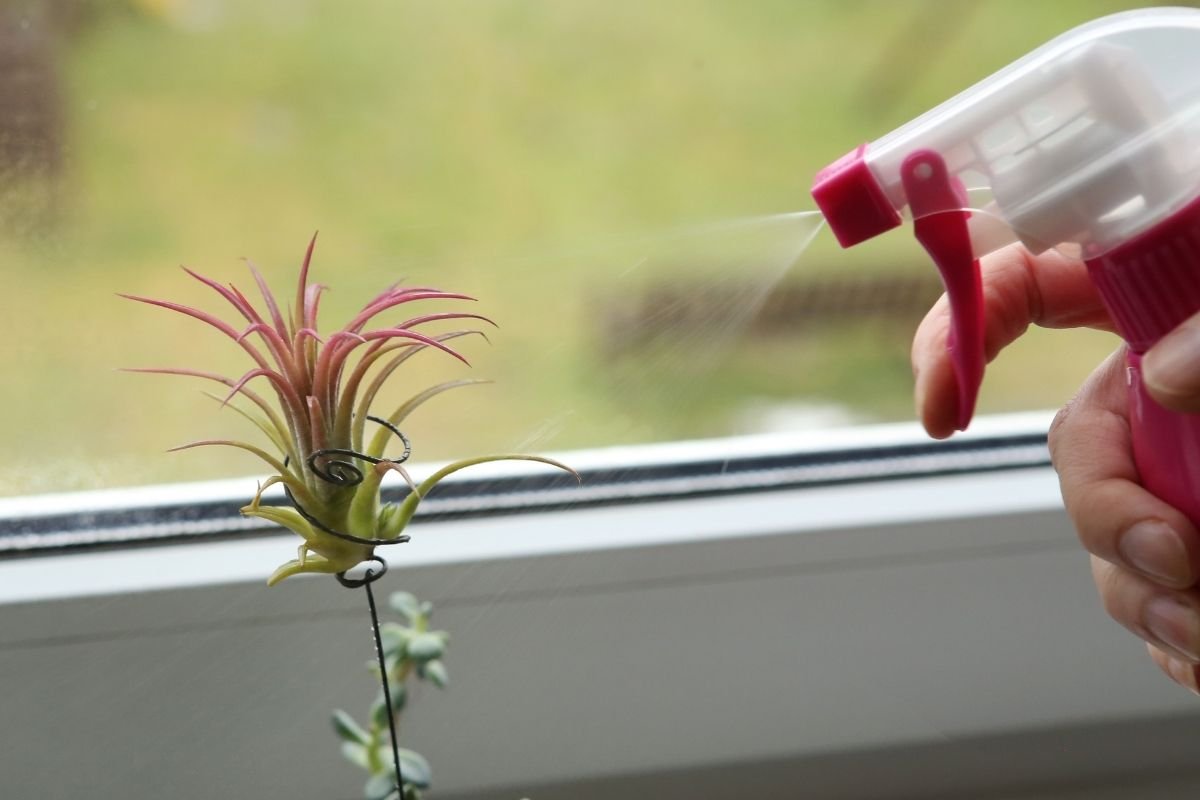Finding the perfect plant for the house can be pretty daunting, especially if watering, planting and maintaining certain temperatures seems like a big task. Enter air plants, which are fairly maintenance-free and incredibly varied.
There seems to be an air plant for every occasion, with the National Gardening Association (NGA) estimating there are more than 1,700 different varieties.
Some can blossom flowers, while others are fragrant, while more still are mainly leafy, looking almost like exotic, stringy succulents.
We break down what makes an air plant so different from other plans, where you should keep it and how to care for these incredible organisms.
What Is an Air Plant?
Air plants are incredibly interesting and are very different from other plants you might find in the backyard.
They are from the Tillandsia genus, which has around 650 species within it.

According to the NGA's Executive Director Dave Whitinger, air plants are bromeliads which tend to live in desert areas, meaning they can thrive and survive on very little.
He also pointed out how they are in the same genus as Spanish moss, which have a similar texture.
He told Newsweek: "Air plants are also bromeliads, which is a family of plants that includes pineapples! Again, it makes sense if you consider the leaves' shape on pineapple fruits."
Calum Maddock, gardening expert at HomeHow.co.uk , said these plants are different to many we see as, rather than being required to live in soil for their nutrients, they are able to retain these from moisture in the air, meaning they are far easier to maintain.
He also said the South African and Mexican plants attach to other organisms, such as branches or even telephone lines.
He told Newsweek: "Tillandsia leaves are coated in water-absorbent cells known as trichomes which are the primary moisture source. Some air plant species have such dense leaves that they give off a frost-like appearance."
Their ability to gain moisture from the air is what has given them their nickname.
Are Air Plants Best Kept Indoors?

As mentioned, they tend to thrive in deserts, meaning soil is not a factor for air plants.
As a result, keeping them indoors is a very viable option, as planting them in the garden is not needed for many of this genus.
Horticulture magazine writer and garden designer Elizabeth Waddington commented how these plants can be utilized when indoors to make a house a home.
She told Newsweek: "Air plants can be very interesting and unusual plants to grow. People like the touch of the exotic they can bring to a home's interior décor.
"Air plants can look very interesting in aerial displays, in terrariums or in other ornamental arrangements—often they are attached to or placed on ornamental objects like pieces of wood, stones, or shells.
"Air plants are also popular because plant-lovers enjoy learning about these unusual species and their botanical features."
They can be kept anywhere inside, though Marcus Jaye, creative director at TheChicGeek's Fabulous Plants, suggests due to the way in which they gain moisture from the air, humidity can be a helpful way to maintain them.
As a result, there is one room in the house which is an ideal setting for an air plant.
He told Newsweek: "They can be quite hard to read. It is recommended you soak them in water every week or so, then allow them to dry, or you can mist them with a spray. It's for this reason they would be best suited in a bathroom."

Andrew Duff, garden faculty director at the Inchbald School of Design, however, suggested the bedroom is an even better option due to how the plants photosynthesize.
He told Newsweek: "One of the many interesting things about air plants is that, unlike other plants, they photosynthesize at night.
"This makes them a wonderful addition to the bedroom as they are breathing out oxygen as you sleep. Like most plants, the aesthetic benefits can really help create a calm atmosphere in any room and even their maintenance is mindful."
But Duff suggested owners can be incredible creative with air plants, propping them among books, hung from a curtain pole or even attached to anything from bathroom mirrors and driftwood.
How to Care for Air Plants

According to Duff, these plants are very easy to maintain, which is a common belief among experts.
As air plants do not need soil, this is one less thing to consider when caring for them, however, they are not completely without maintenance.
Duff said: "Whilst they are very easy to look after they do still require light, food and water to survive long term.
"Just like their original habitat they like a bright position to maximize their light input during the day. They don't have to be on a windowsill but just make sure they are not in a really dark corner."
Whitinger said, similarly to other plants, different varieties need slightly different things.
He said: "Many varieties don't want soil at all, so they can be stuck on a nice piece of wood or inserted into a bed of perlite.
"Lightly spraying them with a mist of water every week or so is all that it takes to keep them going for many years."
Other suggestions from experts included dunking them in water every two weeks to a month, having a good space for them in your home and not putting them in either direct sunlight or darkness, keeping them between 65 and 85 Fahrenheit.
Uncommon Knowledge
Newsweek is committed to challenging conventional wisdom and finding connections in the search for common ground.
Newsweek is committed to challenging conventional wisdom and finding connections in the search for common ground.
About the writer
To read how Newsweek uses AI as a newsroom tool, Click here.






